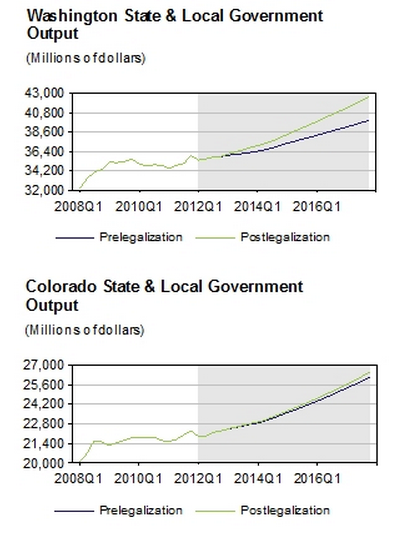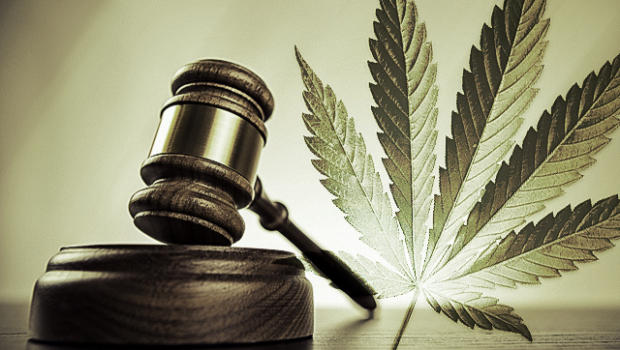Not long ago, the argument for the legalization of marijuana was projected only on the fringe of professionals. A young lawyer could not openly discuss such matters without fear of the potential characterization a senior partner might find in his or her a pro-legalization argument. But now even the leader of the free world believes in it. The Obama Presidency has always been on the cutting edge of social reform: from the way we view Guantanamo Bay to Gay Marriage to Health Care. Now, President Barack Obama is taking on marijuana.
It all began with Colorado. On January 1st of this year, Colorado law went into effect to allow the sale and purchase of marijuana to anyone over 21 years of age. Residents may purchase up to 1 ounce and non-residents up to ¼ ounce. Further, those who are 21 may give another adult over 21 up to an ounce as long as it is not for re-sale. Read more about the Colorado marijuana laws here.
On Sunday, January 19th, the New Yorker published an interview that journalist David Remnick conducted with the 44th President of the United States, Barack Obama. 
When the subject shifted to the growing push to legalize marijuana, Obama stated,
“As has been well documented, I smoked pot as a kid, and I view it as a bad habit and a vice, not very different from the cigarettes that I smoked as a young person up through a big chunk of my adult life. I don’t think it is more dangerous than alcohol.”
His largest argument for the legalization of marijuana revolved around the disparity of punishment between differing economic classes, thus leading to disparity of wealth between racial groups.
“Middle-class kids don’t get locked up for smoking pot, and poor kids do . . . And African-American kids and Latino kids are more likely to be poor and less likely to have the resources and the support to avoid unduly harsh penalties.. . [W]e should not be locking up kids or individual users for long stretches of jail time when some of the folks who are writing those laws have probably done the same thing.”
But the President was also able to aptly state one of the more prominent counter-arguments, namely the slippery slope.
I also think that, when it comes to harder drugs, the harm done to the user is profound and the social costs are profound. And you do start getting into some difficult line-drawing issues. If marijuana is fully legalized and at some point folks say, Well, we can come up with a negotiated dose of cocaine that we can show is not any more harmful than vodka, are we open to that? If somebody says, We’ve got a finely calibrated dose of meth, it isn’t going to kill you or rot your teeth, are we O.K. with that? Read the full article here.
While the he obviously sees positive social change in Colorado, many opponents do not see it as he does. James L. Capra, the Chief of Operations for the Drug Enforcement Agency testified at a Senate hearing, “Every part of the world where this has been tried, it has failed time and time again.” First there are the moral arguments. Many religions, including Catholicism, Judaism, and Islam find intoxicating substances at odds with purpose and design of their teachings. Yet, it is well known that  George Washington, Thomas Jefferson, Benjamin Franklin, Andrew Jackson, James Madison, and James Monroe, all great Americans, grew marijuana. And, prominent leaders including Michael Bloomberg, George W. Bush, Bill Clinton, John Edwards, Al Gore, John Kerry, Sarah Palin, Jimmy Carter, John F. Kennedy, Clarence Thomas, Oprah Winfrey, Bill Gates, Andrew Cuomo, Sanjay Gupta, Rush Limbaugh, Ted Turner, Tom Brokaw, and Martha Stewart have all admitted to marijuana use.
George Washington, Thomas Jefferson, Benjamin Franklin, Andrew Jackson, James Madison, and James Monroe, all great Americans, grew marijuana. And, prominent leaders including Michael Bloomberg, George W. Bush, Bill Clinton, John Edwards, Al Gore, John Kerry, Sarah Palin, Jimmy Carter, John F. Kennedy, Clarence Thomas, Oprah Winfrey, Bill Gates, Andrew Cuomo, Sanjay Gupta, Rush Limbaugh, Ted Turner, Tom Brokaw, and Martha Stewart have all admitted to marijuana use.
From the individual perspective, marijuana is a gateway drug that has the potential to encourage takers to try increasingly more serious drugs. Read about the scientific foundation for this from Cannabis Use and Dependence: Public Health and Public Policy. Or is it? Time Magazine published an article several years ago calling this long-held belief a myth. But, at  least all can agree that legalization creates new users, who might have chosen otherwise if it were illegal. Further, as the book Marijuana Legalization: What Everyone Needs to Know postulates that marijuana and alcohol are merely substitutes. With the increased availability of marijuana, alcohol usage will then go down as a direct result. (Read the Forbes Article about the Book).
least all can agree that legalization creates new users, who might have chosen otherwise if it were illegal. Further, as the book Marijuana Legalization: What Everyone Needs to Know postulates that marijuana and alcohol are merely substitutes. With the increased availability of marijuana, alcohol usage will then go down as a direct result. (Read the Forbes Article about the Book).
We are all familiar with the black market economic model demonstrating that the more unavailable a product becomes under legal means, the more demand is created and the higher the price for that product. The government is missing out on taxable revenue. To be more precise, a 2010 study estimated the federal government and state government could generate $8.7 billion in tax revenue yearly. (Read the Study). But, by the same argument as before, the 36.5% tax in Denver (15% excise tax, 10% special sales tax, 3.5% Denver special sales tax, and 8% standard state sales tax), an ounce may cost $300-$400, not leaving much revenue for the distributors. Just because state law allows the sale of marijuana, does not mean they may deduct the cost of business expenses under 28 U.S.C. § 280E. (Read the Code). The slim profit margin, after all expenses, has been likened to legal alcohol during Prohibition that incentivized continued illegal distributions. As UCLA Professor of Public Affairs believes, “The legal market is going to have a hard time competing with the illegal market, but a particularly hard time competing with untaxed, unregulated sort-of-legal market.”
It is clear from the shades of gray in the various arguments for and against legalization that this disagreement, like that of mandatory health care, will not simply be solved by legislation or even court action. So we cannot expect a uniform policy and outlook, even if the Obama Administration becomes much more unified than it is now.

